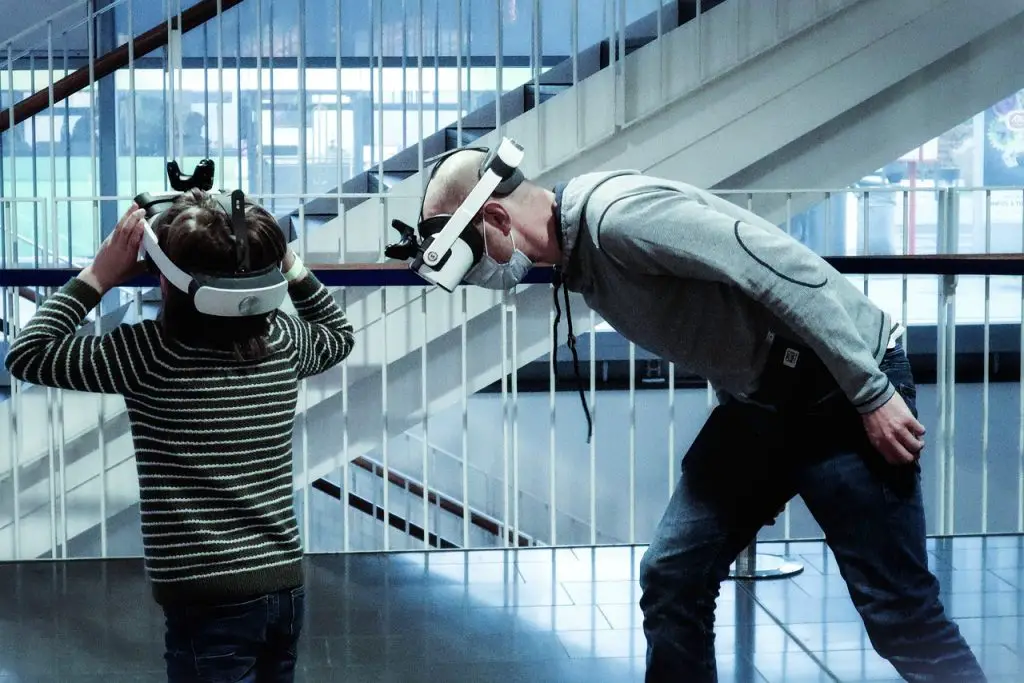AI has the potential to significantly transform the future of work across various dimensions. In this article, we will explore the various ways AI could impact the workplace, including automation, enhanced decision-making, new job opportunities, workplace safety, collaboration, and more.
Automation
One of the most significant ways AI could transform the future of work is through automation. By automating repetitive, routine tasks, AI can free up human workers to focus on more strategic, creative, and complex tasks. This could lead to improved productivity and efficiency in the workplace.
Automation has already made a mark in various industries, such as manufacturing, logistics, and customer service. For example, AI-powered robots can assemble products, sort packages, and answer customer inquiries with speed and accuracy. As AI technology continues to advance, we can expect even more tasks to be automated, potentially leading to the redefinition of many job roles.
Enhanced Decision-Making
AI-powered analytics can help organizations make better decisions by analyzing large volumes of data and identifying patterns, trends, and insights. This can lead to more informed decision-making, better resource allocation, and improved business strategies.
For instance, AI algorithms can help companies analyze consumer behavior to optimize marketing strategies, assess financial risks, and predict future trends. Additionally, AI can help identify potential problems before they become major issues, enabling organizations to take proactive measures to mitigate risks.
New Job Opportunities
While some fear that AI will lead to massive job losses, it is also essential to recognize the potential for new job opportunities arising from AI. As AI technologies become more integrated into various industries, new roles will emerge, such as AI trainers, AI ethicists, and AI maintenance specialists.
Moreover, AI can create a demand for jobs that require uniquely human skills, such as empathy, creativity, and complex problem-solving. As AI takes over routine tasks, human workers can focus on higher-value work, potentially leading to more fulfilling job roles and a higher quality of work-life balance.
Workplace Safety
AI can play a crucial role in improving workplace safety by identifying potential hazards and helping prevent accidents. For example, AI-powered surveillance systems can monitor factory floors or construction sites, alerting workers and supervisors to potential safety risks.
AI can also help improve the safety of remote or hazardous work environments, such as deep-sea drilling, mining, or nuclear power plants, by performing inspections and maintenance tasks that would be dangerous for human workers.
Collaboration
AI can enhance collaboration among teams by streamlining communication and project management processes. For example, AI-powered virtual assistants can help schedule meetings, set reminders, and answer routine queries, allowing team members to focus on more critical aspects of their work.
Furthermore, AI can help break down barriers between different departments or geographic locations, fostering better communication and collaboration among diverse teams. Advanced AI-driven translation tools can help bridge language gaps, enabling seamless communication among global teams.
Personalization and Employee Engagement
AI can help create more personalized and engaging employee experiences by analyzing individual performance, preferences, and learning styles. This information can be used to tailor training programs, feedback, and career development plans, ultimately improving employee satisfaction and retention rates.
Moreover, AI can help identify potential burnout and flag at-risk employees, enabling managers to take proactive steps to address issues and maintain employee well-being.

Remote Work and Virtual Reality
AI can enhance remote work experiences by facilitating seamless communication and collaboration among remote teams. AI-powered virtual reality (VR) and augmented reality (AR) can create more immersive remote work environments, allowing workers to feel more connected and engaged, even when working from a distance.
Talent Acquisition and Management
AI can revolutionize the way companies find, recruit, and retain talent. AI-driven algorithms can help identify potential candidates by analyzing large amounts of data, such as resumes, social media profiles, and online portfolios. This allows organizations to quickly and efficiently identify candidates who best match the required skillset and company culture.
AI can also streamline the recruitment process by automating tasks such as resume screening, interview scheduling, and candidate assessment. For instance, AI-powered chatbots can conduct initial interviews, helping recruiters focus on high-potential candidates.
In addition, AI can help in the retention of talent by identifying patterns that may indicate employee dissatisfaction or disengagement. By proactively addressing these concerns, companies can improve employee satisfaction and reduce turnover rates.
Bias Reduction and Fairness
AI has the potential to help reduce bias in the hiring process and promote diversity in the workplace. By leveraging algorithms that minimize the influence of unconscious biases, AI can help organizations make more objective, data-driven decisions when evaluating candidates.
However, it is crucial to ensure that AI algorithms themselves are free from biases, as they can inadvertently perpetuate existing inequalities if not designed carefully. This highlights the need for multidisciplinary teams and ethical considerations when developing AI-driven recruitment tools.
Upskilling and Reskilling
As AI technology continues to advance and reshape the labor market, there will be an increased need for workers to learn new skills and adapt to evolving job roles. AI can play a pivotal role in facilitating this upskilling and reskilling process.
AI-powered learning platforms can personalize training content based on individual needs and learning styles, providing employees with the most relevant and effective learning experiences. Moreover, AI can help identify skill gaps and recommend targeted training programs, allowing workers to stay competitive in the changing job market.
Performance Evaluation and Feedback
AI can help revolutionize performance evaluations and feedback by providing real-time, data-driven insights into employee performance. This can help managers make more informed decisions about promotions, compensation, and career development opportunities.
AI-driven feedback systems can also help employees identify areas for improvement and develop actionable plans to enhance their performance. This ongoing, personalized feedback can lead to more engaged and motivated employees and better overall performance.
In conclusion, AI has the potential to significantly transform the future of work across multiple dimensions, from automating tasks to enhancing decision-making processes and creating new job opportunities. As AI technology continues to advance, it is essential for organizations to adapt and embrace these changes, ensuring that they remain competitive and provide a supportive and engaging work environment for their employees. At the same time, it is crucial to address ethical and social concerns related to AI, such as potential job displacement, privacy, and algorithmic biases, to ensure that AI is used responsibly and equitably in the workplace.







